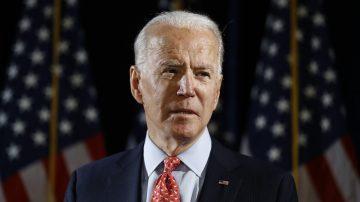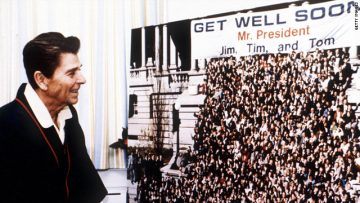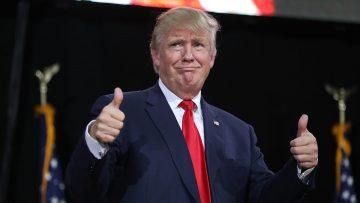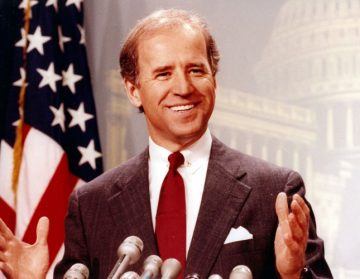by Godfrey Onime

Just months after the new president was sworn into office, a would-be assassin’s bullet whizzed through the air and sliced into his chest. It cracked his rib, punctured his left lung, and barely missed his heart. It was March 30th, 1981 and Ronald Reagan was rushed to the George Washington University Hospital, in Washington, DC. His wife arrived as Reagan was being whisked to surgery and the injured president managed to croak, “Honey, I forgot to duck.” Reagan recovered fully after surgery, becoming the first U.S. president to survive an assassination attempt after a gunshot. Three years later and aged 73, he would clinch a resounding reelection to become, until now, the oldest person to win a presidential bid. But soon questions of a potential mental decline began to mount concerning the septuagenarian, such as when during a 1984 general election debate he told an anecdote that meandered aimlessly and fizzled to nowhere. A decade later, Reagan would announce that he had Alzheimer’s disease.

Age, it is often said, is just a number. But when it comes to the presidency of the United States, is it really? Should it simply be? This question is compounded by the lack of guidance in the U.S. constitution: While it places a minimal age requirement of 35 to run for office, it imposes no upper age limit.
And now, the country has elected Joe Biden to assume the presidency at age 78 – one year older than when Reagan, after a second term, left the post. That is among the many presidential histories that Biden’s election has made — the oldest person to date to be rewarded with America’s highest office. Yet, an advanced age puts a person at increased risk for diseases and health complications, including heart attack, stroke, various cancers, Alzheimer’s disease, and of course, death. After all, as George Burns once quipped, “At my age, flowers scare me.”
Even so, an elderly age does not equate imminent death or even diseases. Take the raging COVID-19 pandemic, for instance. The coronavirus is more likely to kill elderly persons, but President Trump, at age 74, “beat it,” as he often taunted, although – to the unease of physicians like myself – he used such pronouncements to falsely minimize its risks.

Still, the issue of an advanced age of a president cannot be taken lightly. There is every reason for caution in electing a person who may develop complications while in office, or worse die, as this can be politically and economically destabilizing. It is especially worrisome if a president lacks a sound mental capacity, as she or he often holds the power to make innumerable life-and-death decisions — policy, military or otherwise — that can affect the country and the world far and near.
Little wonder, then, that it was the question of Biden’s mental capacity that dominated much of his health-related attacks during the 2020 presidential campaign, even though the president-elect has other known health conditions, including irregular heartbeats, or atrial fibrillation. For instance, prior to the 2020 election, president Trump told Fox News during one of his many lengthy interviews that his rival could not form complete sentences. “They said if you let him talk, he’ll lose his train of thought because he’s gonzo,” Trump had said, “He loses his mind, frankly.” (It must be said, though, that the Biden camp too never tired of painting Trump as mentally unfit for the office).
“Both candidates and their representatives are weaponizing age in a negative way,” Stuart Jay Olshansky, a professor of public health at the University of Illinois at Chicago who analyzes the longevity of presidents, told the Washington Post. Olshansky published a paper in September of 2020 reviewing the health status and projected life spans for both Trump and Biden. “In fact, the very claims that they are making about the other candidate can equally apply to them,” asserted Olshansky.
Although a three-page summary of Biden’s medical history released by his doctor in December of 2019 pronounced him “healthy, vigorous” and “fit to successfully execute the duties of the Presidency,” his opponents were relentless. In attempts to buttress claims of a decline of Biden’s mental acuity, they pointed to a health scare he had in 1988 while he was a senator.
Biden’s ordeal started as what he had described as the worst headache of his life. When doctors scanned his brain, they discovered an aneurysm — a balloon-shaped bulge of one of the blood vessels that can rupture and become quickly fatal. Biden was rushed to surgery, a priest called in prior due to fears of imminent death or disability. The doctor sawed a two-inch circular opening through his skull and removed a piece of bone, like the lid of a cookie jar. Then the neurosurgeon peered through a microscope and realized that the aneurysm had began to leak, a puddle of blood forming.
Working frantically, the surgeon successfully arrested this complication; he deployed a clip to stop the bleeding and to repair the aneurysm. Then he replaced the bony cap on Biden’s brain and closed the skin over it. But the 45 year old senator’s ordeal was far from over — the doctors had discovered a second aneurysm that will need a yet other, though less emergent, surgery. But then, there was a chance it too could rupture.
Biden suffered a complication of blood clots that can be common after surgery and become fatal in the form of clots traveling to and chocking blood from the lungs and vital oxygen from the body. But the then senator suffered no serious damages from the blood clots. He also subsequently underwent a successful repair of the second aneurysm in his brain, this time without rupture or other incidents.
Some in the Trump campaign tried to bolster their claims of a mentally unstable Biden with these aneurysms fiascos, but many brain surgeons have pushed back.
Neal Kassell, one of the two surgeons who operated on Biden, said the president-elect ultimately recovered fully, according to the Washington Post.
“He had no brain damage whatsoever,” Kassell said. “He is as mentally sharp now as he was then.”
Propaganda, says John Harris in Politico, works through repetition. No one knows this better than Trump and his allies in the media. When not dangling the possible ill-effects of Biden’s long ago surgery for brain aneurysms, they often suggested that the president-elect has dementia. Harris has documented some of these assertions. In March, Trump charged that if Biden was elected, “They are going to put him in a home and other people are going to be running the country.” Further, Trump on Twitter said Biden would destroy Medicare and Social Security “and not even know he’s doing it.”
Fox News’ Sean Hannity, who often spoke with Trump, said that it was legitimate to ask whether the former vice president had “the mental acumen and the focus required to serve in what is the most difficult job in the world, period” and adding, “Without a doubt, Biden is struggling.” Tucker Carlson, who also often informally spoke with Trump, charged that Biden had “lost it” and was “noticeably more confused now than he was even last spring when he entered the race.” Even some voices on the left seized upon this narrative. Matt Stoller, who backed Bernie Sanders, suggested on Twitter that the then former vice president was a drooling loony. “Democratic insiders know Biden has cognitive decline issues,” he wrote. “They joke about it. They don’t care.”
While both Trump and Biden had parents who lived past 80 years old, Trump’s father developed Alzheimer’s disease late in life. That, interestingly, ups the risk for Trump to more likely develop a similar complications of aging than the president-elect Biden.
There is one drawback to the contemplation of Biden’s mental health: a lack of a formal psychological and cognitive assessment – at least none that is public. (There is none available for Trump, either). However, Anne Marie Griebie and psychologist Aubrey Immelman of the College of St. Benedict and St. John’s University undertook a series of at-a-distance evaluation of Biden’s public personality, as they had done of other presidential candidates dating to the 1990s. The researchers gathered open-source material on Biden and then conducted empirical ratings of his personality using the Millon Inventory of Diagnostic Criteria (MIDC).
Griebie and Immelman found Biden’s personality as predominantly outgoing/gregarious, with lesser features of accommodating/cooperative and ambitious. The leadership of individuals possessing this profile, they proposed, embraces an interpersonal focus that encompasses “flexibility, compromise, and an emphasis on teamwork.”
I chatted with Troy Sterk, DO, a physician and staunch Republican, and former chief of medicine at UNC-Southeastern Health, in Lumberton, NC. Dr. Sterk stated that like everyone in the media who like to sound-off about the president-elect’s mental health, he has not personally examined Biden. However, from what he has publicly observed, the president-elect seems mentally fit for office, but adding, “For two years.” When I countered that Biden was elected for four years, Dr. Sterk replied, “The presidency is a tough job. You see how much Obama aged in the time he was in office?” He conceded that Biden has been in public service for “a long time and was a former vice president, so he may be used to the pressures of the job.” But, he’d say that the president-elect is “good for two to three years.”
Omar Rodriguez, MD, my colleague at UNC-Southeastern Health and who reported his party affiliation as independent, believed that Biden appears very much mentally fit. “He is eloquent and seems to understand the anxiety people are feeling, and he can help to heal this country. He is not narcissistic and does not have a tendency to degrade others. What do you call that if not a sound mental health?”
Jonathan Chait has argued in the New York Magazine that sure, Biden has lost a step since his prime, and aging has worsened his lifelong struggles with stutter, producing some haltering moments he had been better able to control as a younger man. And Paul Gordon, MD, also my colleague at UNC-Southeastern and self-identifying as Independent, added, “Which of us never forgets a thing or misspeaks or search for a word here and there? Maybe those who believe Biden is senile think so because he hasn’t remembered to confess about grabbing women by their body parts.”
I have always been fascinated by persons who seem to age exceptionally. And I find Biden no exception. Small gaffes or not, when I witnessed on national TV the fit, 77-year old president-elect wearing surgical-mask jog to the podium to give his victory speech one the night he was projected winner, the physician in me could not be more assured of his physical stamina. And listening to his energetic speech that at least made overtures to unite rather than continue to divide the nation, I could not be more persuaded of his sound mental faculties.

Even so, life is not guaranteed any of us, whether young or old. We witness people in their prime die every day, celebrities and presidents non-except — John F. Kennedy, Steve Job, Amy Winehouse, Kobe Bryant. And then there are many others who could have died young (Biden from his brain aneurysms and blood clots, for instance) but go on to live long and productive lives.
Experience, it is said, is the best teacher. And Biden has had plenty of that — whether in public service or through personal health scares and family tragedies. So, now that the 2020 election is by and large over, and knowing that the many Trump lawsuits and challenges are not likely to change the outcome, it is time for us as Americans to rally behind the new president. Ever the wisecrack, at one point in the operating room after Ronald Reagan’s had been shot, he removed his oxygen mask and declared, “I hope you are all Republicans.” The doctors and nurses laughed, and the head of his trauma team, Dr. Joseph Giordano, a liberal Democrat, replied, “Today, Mr. President, we are all Republicans.” Like Giordano who put politics aside, all of us working as a team is the only way to effectively get the job of running this great nation done, for its own benefit and that of humanity at large. And I must underscore that perhaps the most pressing of these issues concerns healthcare — climate change, the coronavirus pandemic, health insurance and access to healthcare, etc. After all, the prerequisite to a full life and a vigorous economy is a healthy people and society.
Our politicians like to conclude their speeches by asking God to bless everyone and the United States of America. I’ll like to add here for the Almighty to bless our new president-elect and to open our hearts to love our neighbors as ourselves.
